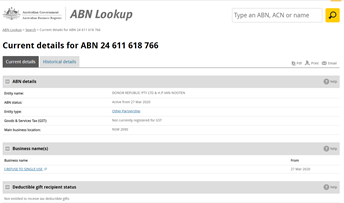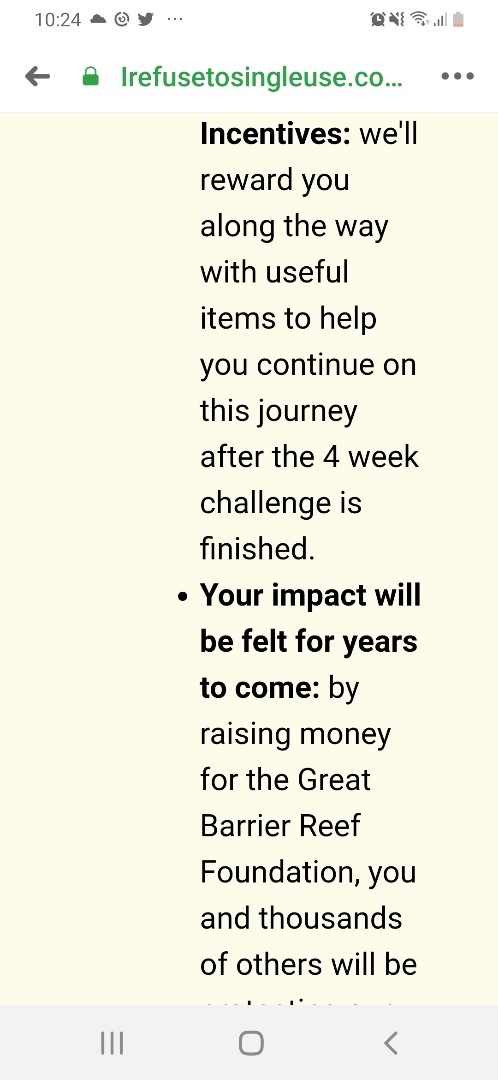Just days after its launch, I Refuse to Single Use, which mimicked Plastic Free July, has been cancelled. How much will the Great Barrier Reef Foundation, granted $444 million of taxpayers’ money, now be up for in penalties for breaking its contract with Donor Republic, the agency that devised the initiative that effectively swiped the intellectual property? Elizabeth Minter reports.
‘I Refuse to Single Use’, the copycat campaign backed by the Great Barrier Reef Foundation that simply mimicked the decade-old internationally successful Plastic Free July, has been cancelled, just a week after it was launched.
On Wednesday Michael West Media reported that the Great Barrier Reef Foundation had thrown its weight behind I Refuse to Single Use, set up by Donor Republic, which describes itself as an “innovative full-service fundraising and marketing agency”.
Participants in I Refuse to Single Use were asked to set a minimum fundraising target of $99, payable to the Great Barrier Reef Foundation.
On Thursday, the day after our story appeared, the Great Barrier Reef Foundation sent out an email explaining that following community concerns, it had asked Donor Republic to remove the Foundation as “the beneficiary of the funds raised as part of the ‘I Refuse to Single Use’ campaign”.
Fossil fuel-backed Great Barrier Reef Foundation mimics plastics campaign, sidesteps climate change
And now, a quick look at the ‘I Refuse to Single Use’ website shows the campaign has been cancelled, with registrations and donations closed. I Refuse to Single Use : Holding
In that email sent to Michael West Media, the Foundation seemed to lay all the blame for the botched copy-cat campaign at the feet of Donor Republic.
“Devised and run by Donor Republic, we weren’t involved in the development or management of the campaign and we haven’t provided any funds toward the event.”
Michael West Media sent a number of follow-up questions to the Foundation, asking:
- who signed off on the Foundation’s decision to support I Refuse to Single Use campaign?
- what responsibility it was taking for signing up to a campaign that potentially undermined a long-standing grassroots initiative?
- what responsibility it was taking given the Foundation had agreed to take $99 from each participant in the campaign, its logos were on the campaign website and it was promoting the campaign on social media, including through letters from Anna Marsden, the managing director of the Foundation.
- what financial penalty the Foundation would have to pay Donor Republic in light of the cancellation.
The Foundation has not responded to any of these questions.
Work on the I Refuse to Single Use campaign began at least a year ago – on March 27, 2020, when Donor Republic registered the business name of I Refuse to Single Use. Again, the Great Barrier Reef Foundation has refused to say when it signed up with Donor Republic for this campaign.

For grassroots campaigners, this experience has raised a number of issues. They are concerned that the intellectual property of long-standing movements is not safe from copycat campaigns.

A second issue is the increasing corporatisation of grassroots environmental campaigns, with corporate brands getting in on the act to push their products.
For example, where Plastic Free July relies on people making an effort with the sole motivation of intrinsic rewards, the I Refuse to Single Use campaign built in extrinsic rewards to be provided by products from sponsors. For example,
It offered “Incentives” to participants, who were to be rewarded “along the way with useful items to help you continue on this journey after the 4 week challenge is finished”.
A 30-year veteran of the mainstream media, Liz was the editor of Michael West Media until June 2021. Liz began her career in journalism in 1990 and worked at The Age newspaper for two 10-year stints. She also worked at The Guardian newspaper in London for more than seven years. A former professional tennis player who represented Australia in the 1984 Los Angeles Olympics, Liz has a Bachelor of Arts and a Bachelor of Letters (Hons).

